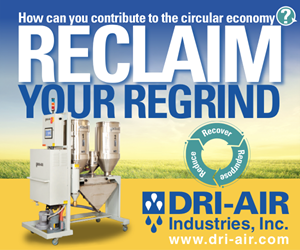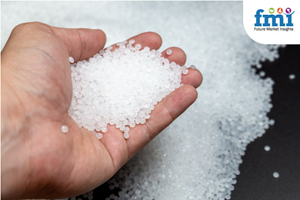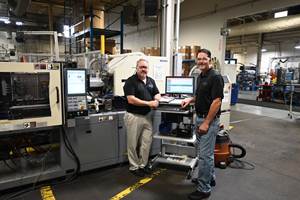NAFTA Modernization Supported by North American Plastics Industry
Three major trade groups announce list of priorities for plastics in upcoming negotiations.
A recent summit that brought together the leadership of North America’s three leading plastics industry trade groups—Plastics Industry Association (PLASTICS), Canadian Plastics Industry Association (CPIA) and Asociación Nacional de Industrias del Plástico A.C. (ANIPAC), was held in Mexico City, Mexico. The result was a unified platform of policy priorities by the North American plastics industry for the upcoming modernization of NAFTA that will strengthen each nation’s plastics industry.
Here are several specific areas of focus for trade negotiators when they begin to work on NAFTA later this year, as agreed upon and advocated by the three organizations:
● Continued support of the growth and development of the North American plastics industry. Since NAFTA took effect, its member nations’ plastics industries have grown immensely. Broadly, each organization supports efforts to promote this growth.
● Harmonization of regulations of all types as they affect the industry. For example, aligning regulations on food packaging that are different would make it easier for smaller companies to expand their business across borders without having to worry about a new compliance burden. Another example would be a continent-wide harmonization of the treatment of plastics as sustainable materials, for the purposes of government procurement and other areas. Adjusting NAFTA to facilitate enhanced sustainability efforts throughout the industry in North America is a key goal for all three nations.
● A review of the Rules of Origin (ROO). Endorsement of a review of ROO and their enforcement under NAFTA as they impact everything from raw plastic materials all the way through finished products containing plastic.
● Ease of employee access throughout the continent. Employees of plastic companies, particularly those that sell and service manufacturing machinery, should be able to travel and work throughout NAFTA member nations. Certain requirements make it costly for businesses to send employees to other countries to provide their services, and these should be adjusted or eliminated.
● No new tariffs. The absence of tariffs is what’s made NAFTA so successful for all three member nations’ plastic industries over the last 25 years. The North American plastics industry is united in its opposition to any new tariffs that would have a profoundly negative impact on all three nations and their workers.
● Continued labor cost flexibility between the three nations. The diversity of labor costs in North America provide immense benefits to our industries, and allows each of them to be competitive globally and to play to the strengths of each individual country’s plastics industry. We would oppose attempts to restrict the choices manufacturers have when it comes to where and how they make their products.
PLASTICS, CPIA and ANIPAC plan to continue to work together throughout the NAFTA renegotiation process. Said PLASTICS president & CEO William Carteaux:
“Our three organizations stand unified in wanting to support the growth and development of our industry across North America….plastics are the proven sustainable material of choice for an infinite array of applications throughout North America, and the world at large. Strengthening NAFTA will enable us to work together to develop new solutions to our world’s environmental challenges while also benefitting the millions of workers in the three NAFTA member nations.”
Read more about PLASTICS work to support NAFTA.

Related Content
Plastic Compounding Market to Outpace Metal & Alloy Market Growth
Study shows the plastic compounding process is being used to boost electrical properties and UV resistance while custom compounding is increasingly being used to achieve high-performance in plastic-based goods.
Read MoreHonda Now Exploring UBQ’s Biobased Material Made from Unsorted Household Waste
UBQ is aiming to expand its reach for more sustainable automotive parts as well as non-automotive applications.
Read MoreAtop the Plastics Pyramid
Allegheny Performance Plastics specializes in molding parts from high-temperature resins for demanding applications as part of its mission to take on jobs ‘no one else does.’
Read MoreK 2022 Preview: Engineering Materials for Sustainability and E-Mobility
Materials that are sustainable yet offer equal performance to their fossil-based counterparts will be prominent at K 2022.
Read MoreRead Next
Lead the Conversation, Change the Conversation
Coverage of single-use plastics can be both misleading and demoralizing. Here are 10 tips for changing the perception of the plastics industry at your company and in your community.
Read MoreBeyond Prototypes: 8 Ways the Plastics Industry Is Using 3D Printing
Plastics processors are finding applications for 3D printing around the plant and across the supply chain. Here are 8 examples to look for at NPE2024.
Read MorePeople 4.0 – How to Get Buy-In from Your Staff for Industry 4.0 Systems
Implementing a production monitoring system as the foundation of a ‘smart factory’ is about integrating people with new technology as much as it is about integrating machines and computers. Here are tips from a company that has gone through the process.
Read More












 (2).jpg;maxWidth=300;quality=90)













